When you look at a tiny animal such as a guinea pig, people often assume that they can eat almost anything. This also has to do with their name because “real” pigs can eat almost anything.
Well, this is not true for our small guinea pigs! Despite being huge food lovers, guinea pigs should have their nutrition pretty limited to certain plants and vegetables.
Guinea pigs were always herbivorous animals, even back when they used to live in forests. Since we adopted them, guinea pigs became more socialized, but their way of surviving is literally the same.
Herbivorous animals are more intolerant to certain foods, and guinea pigs aren’t exceptions.
Here is the list of 13 most toxic foods for guinea pigs:
- Any Kind of Meat
- Dairy Products
- Avocados
- Onions
- Potatoes
- Tomato (Green Parts)
- Nuts
- Candies and Chocolates
- Seeds
- Certain Guinea Pig Treats
- Iceberg and Lighter Lettuce
- Gassy Vegetables
- Fresh Fruit That is High in Sugar
Every type of food on this list needs to be avoided, or it can have a drastic impact on your guinea pig’s health. So keep reading below to know more about these toxic foods in detail!
13 Most Toxic Foods for Guinea Pigs You Should Avoid at All Costs
So, if you don’t know what foods you definitely need to avoid feeding your guinea pig, see the list below:
1. Any Kind of Meat
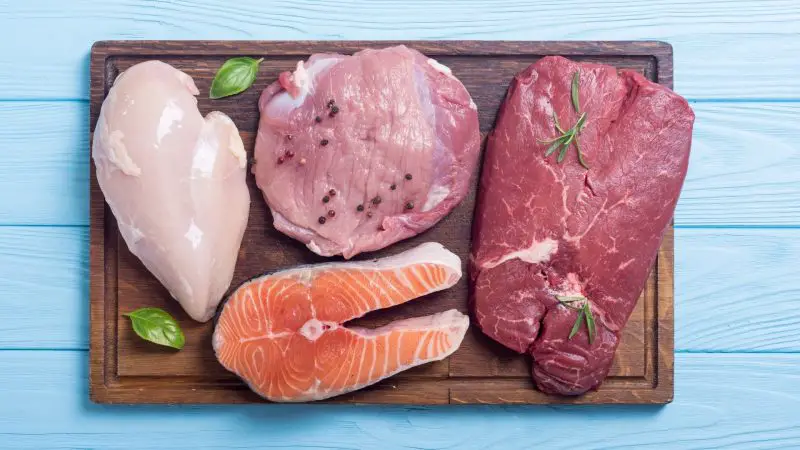
The first thing you should never give to your guinea pig is meat. Whether it’s fish, beef, chicken, or any other kind of animal, meat should never be in your guinea pig’s meal plan.
Guinea pigs, as herbivorous animals, have digestive systems that are set up only for digesting plants and nothing else.
On the other hand, the carnivorous animals’ digestive system is much more versatile, and technically, they can survive by eating only plants. But, they don’t eat it since their nature tells them only to eat meat.
If you give your guinea pig eat any kind of meat, it may produce some serious side effects. Since guinea pigs can’t digest meat, it can lead to stomach problems, make your guinea pig seriously ill, and of course, it can sometimes lead to death.
2. Dairy Products
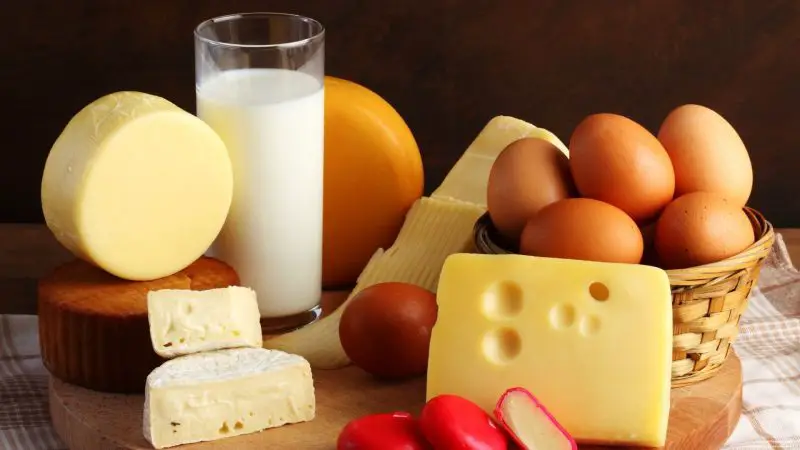
Any kind of dairy product is bad for your guinea pig. Whether it’s yogurt, sour cream, cheese, kefir, or milk, guinea pigs can have serious issues digesting these. Dairy products can sometimes create problems even for us, humans, and for a guinea pig, that’s just overkill.
Some guinea pig owners advocate putting a few drops of yogurt into guinea pig’s food. This is not good, and you should forget about it.
As guinea pig’s digestive system is very complex, they don’t have the right type of enzymes to digest dairy products properly.
Even though your guinea pig seems normal after consuming some dairy products, don’t be fooled. Dairy products take a while to produce symptoms, and when they do, your piggie can be in serious trouble.
3. Avocados
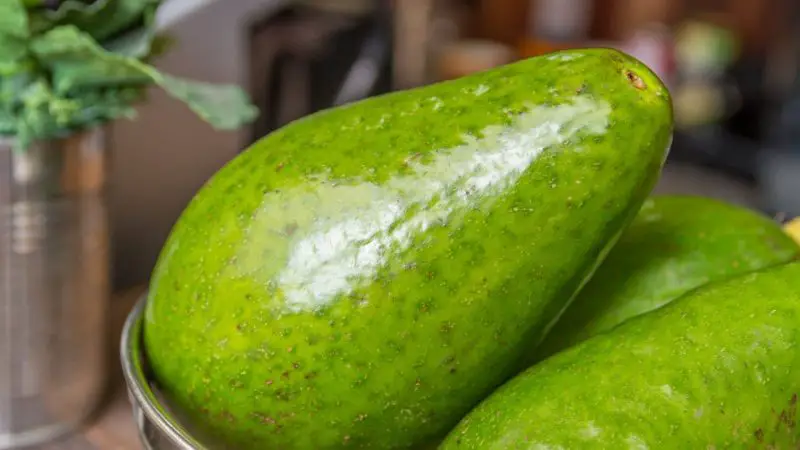
Avocados are great for humans. They represent a healthy source of fat, vitamins, and minerals.
Avocados can also help you lose weight through quality fats and low carbohydrates.
But remember, guinea pigs have a sophisticated digestive system and can’t benefit from avocados.
The reason for this is that avocados are high in fat. Given that many guinea pigs suffer from weight issues, giving them additional fat isn’t going to produce good results.
Some people will still give guinea pigs the inside ’soft’ meat, but that’s all the same. All in all, don’t bother with avocados. Eat them yourself, and don’t ever give them to your guinea pig.
4. Onions
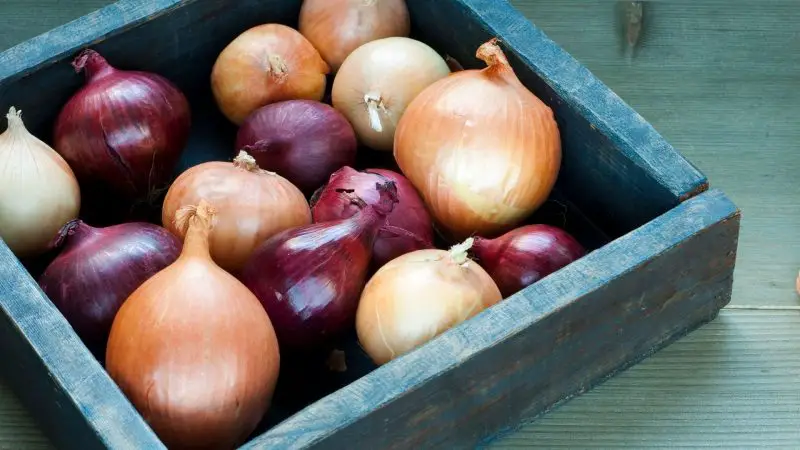
Onions are great for humans, yet they aren’t safe for guinea pigs. What’s more interesting is that even dogs aren’t supposed to eat onions.
There is a simple reason for it: the presence of a substance called disulfide. Disulfide can damage red blood cells in guinea pig’s bloodstream.
After being damaged, these cells can’t carry oxygen, thus making your guinea pig weak, anemic, and unable to breathe properly. Guinea pigs can even die from these conditions, and that’s why you should never give onion to your pig.
5. Potatoes
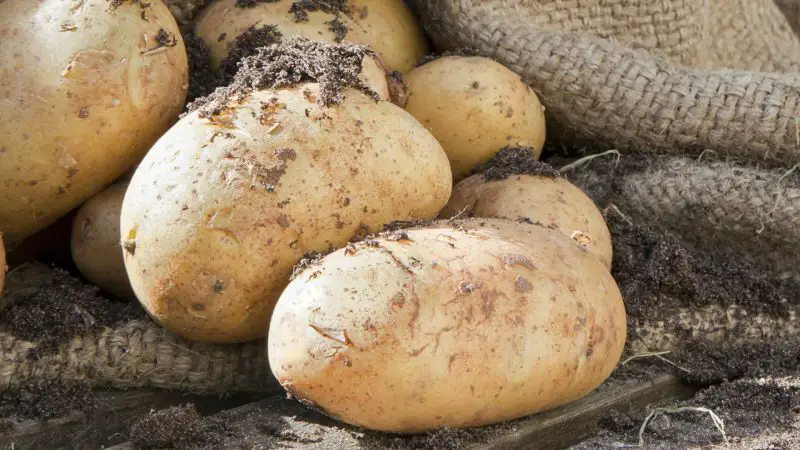
Potatoes are completely useless for your guinea pig, apart from being dangerous. If we take a look at the nutritional value of potatoes, we can see that carbs are the most dominant.
Carbs, especially in higher amounts, can make your guinea pig fat and also increase blood sugar. Furthermore, potato skin has harmful toxins that can be poisonous to guinea pigs.
All in all, potatoes can be very poisonous, and they also don’t bring any quality vitamins and minerals for a guinea pig.
6. Tomato (Green Parts)
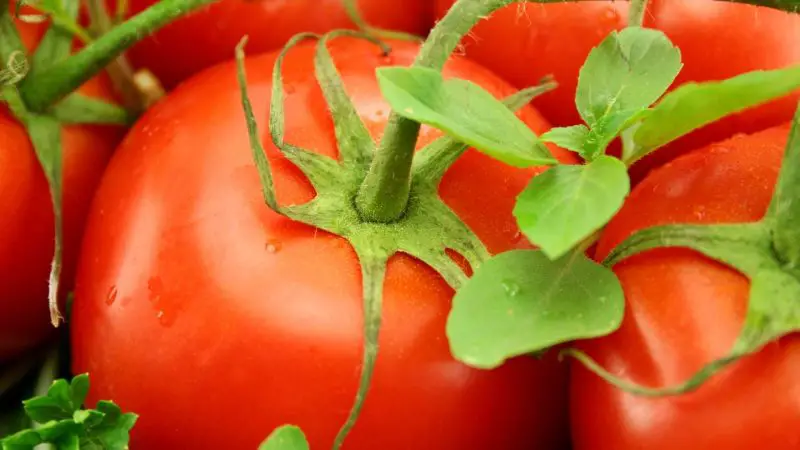
Fresh tomatoes are good for your guinea pig, but certain parts are toxic, such as vine, leaves, and the stalk attached directly to the tomato.
When you feed your guinea pig with tomatoes, be sure to remove the uneaten food as tomatoes can very easily get rot, and in this state, tomatoes are very bad for a guinea pig.
7. Nuts
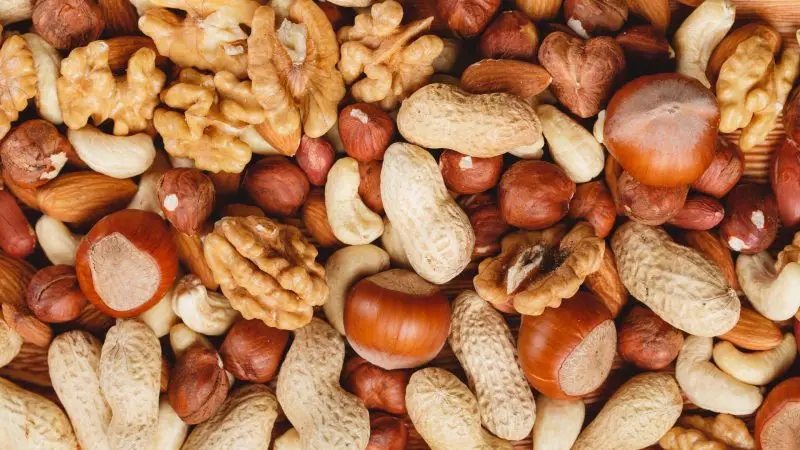
Much like avocados, nuts have a lot of fat in them. Every single nut, such as walnut, hazelnut, or peanut, has an excessive amount of fat. It’s not that this fat is necessarily bad. After all, we’re talking primarily about unsaturated fat.
But, any kind of fat can make your guinea pig gain some weight. Even 10 grams of fat a day can make guinea pig fatter than it is.
Remember, guinea pigs are very small animals. 10 grams of fat for them isn’t the same as for us or any bigger animal. On top of that, some of the nuts can cause certain digestion problems.
8. Candies and Chocolates
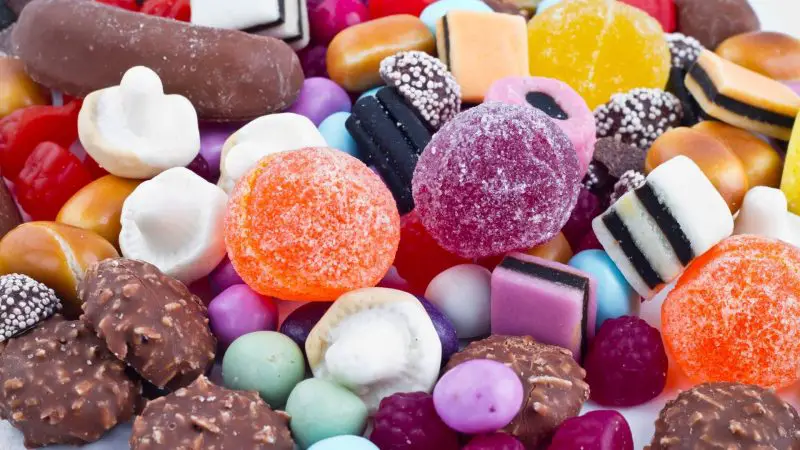
Candies and chocolates have mostly carbohydrates and some fat too! If we’re talking about milk chocolate, we also have some fat in there, accompanied by a high amount of sugar.
A high amount of sugar isn’t even good for people, and for a guinea pig, it can be the number one ingredient that can cause certain health issues.
Let’s begin by saying that carbohydrates are the number one culprits for weight problems.
9. Seeds
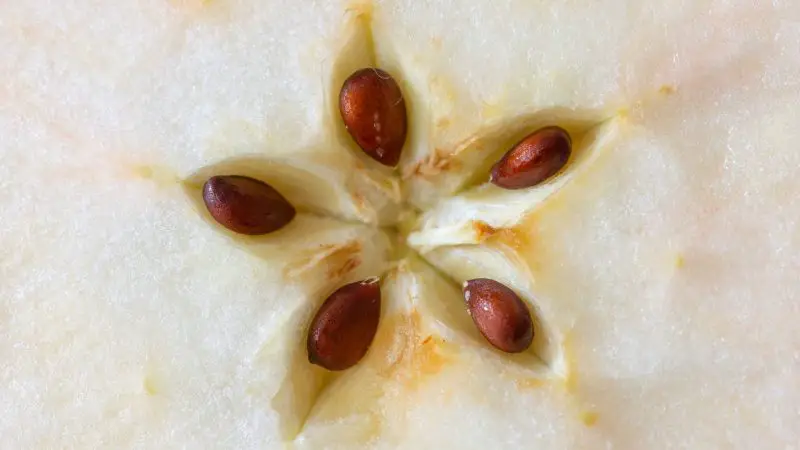
Seeds should never be given to guinea pigs. The main reason is that they can be very easy to swallow accidentally, and the seeds can easily choke your guinea pig.
Furthermore, seeds are sometimes high in fat, and guinea pigs don’t need any fat in their diet. Finally, some seeds contain arsenic, which can be deadly for a guinea pig.
Apple seeds, for example, contain a fair amount of arsenic, so here’s something to evade next time you feed your guinea pig.
10. Certain Guinea Pig Treats
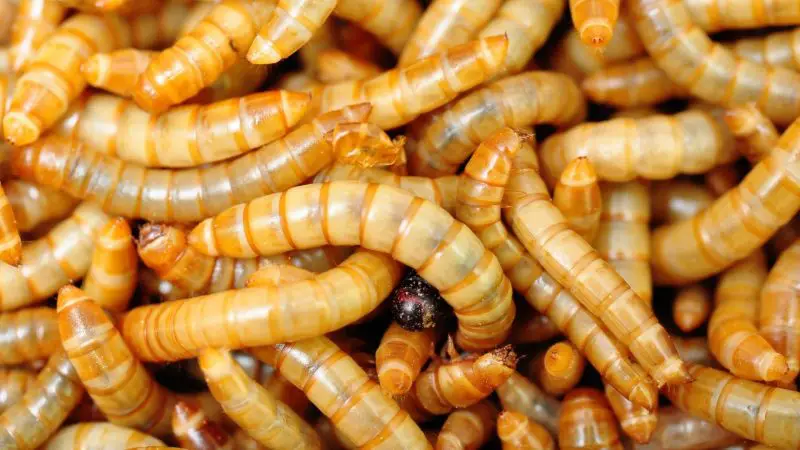
When visiting a pet shop, you often see those guinea pig treats. They look kind of delicious, and your guinea pig seems to enjoy it.
But some of these treats contain ingredients unhealthy for guinea pigs. Most of them have some amount of sugar and other unusable ingredients that can damage your guinea pig’s health.
When we talk about unusable ingredients, we usually think about mealworms.
It’s basically a form of meat, and as we mentioned, any form of meat can be deadly for a guinea pig.
Next time you plan on buying some treats, please read the product description carefully and decide whether or not to buy it.
Related: Best Guinea Pig Treats | A Helpful Guide
11. Iceberg and Lighter Lettuce
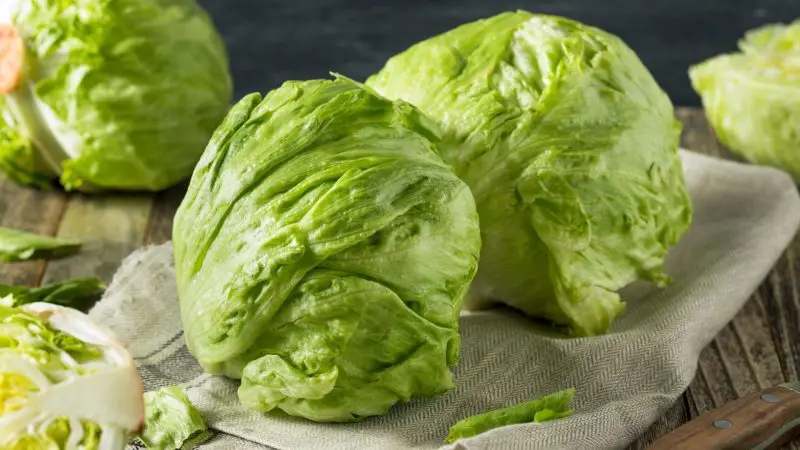
As much as it sounds strange, guinea pigs shouldn’t eat lettuce, at least not the Iceberg and lighter lettuce. We’re sure there are some types of lettuce viable to guinea pigs, but to pick the right one is going to mean the trial-and-error approach.
Your guinea pig can suffer from diarrhea and various digestion problems through trial and error. This is the main issue with Iceberg and lighter lettuce as it can lead to very problematic diarrheas during the day.
As for alternatives, you can always go for carrot tops, dandelions, greens, and endive.
12. Gassy Vegetables
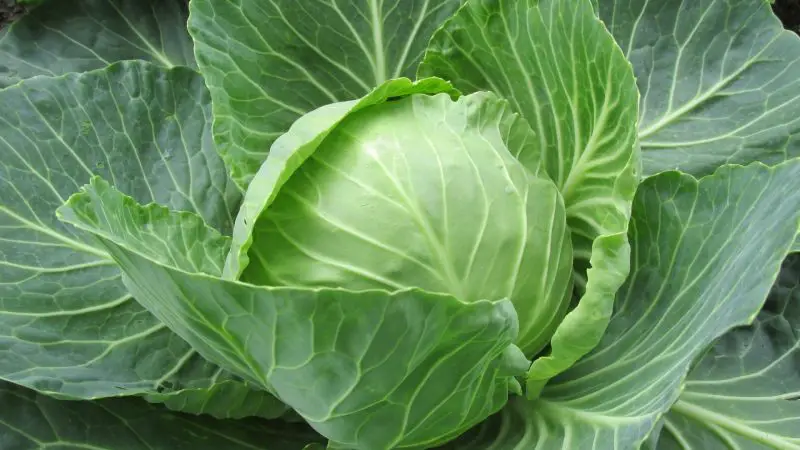
Guinea pigs can get bloated too. And when that happens, they have no way of releasing the excessive gas.
You’ll agree that cabbage can sometimes make you bloated, but we have a way of releasing that gas in our case. On the other hand, guinea pigs will get bloated with no possibility of releasing it.
This condition can decrease the appetite of a pig and make it less active due to bloat and pain in the stomach.
13. Fresh Fruit That Is High in Sugar
Fresh fruit isn’t bad for your guinea pig but only in one case – when given as an occasional treat.
As we know, fructose located in fruit isn’t the healthiest sugar out there. In fact, it’s one of the least healthy sugars as it converts to glycogen in your liver rather than in your muscles, except in some rare cases.
Any kind of sugar in the guinea pig’s diet is unwanted, and so is fruit sugar.
Some fruit is usually given to guinea pigs for a solid amount of vitamins and minerals that your pet can get.
However, avoid giving them too sugary fruits such as bananas, oranges, apples, and pears. They can eat these fruits but occasionally and in small serving sizes. Instead, focus on giving some low-sugar fruit.
If given in the right amount, fruit can supply a guinea pig with a healthy dose of vitamins. Be sure to thoroughly wash the piece of fruit before giving it to them.
Summary
Remember that your guinea pig’s nutrition should be at least 80% hay. That being said, the other 20% are kept for food that your guinea pig can eat, aside from hay.
The primary focus of the diet should be on hay, and the food we’ve mentioned above should be evaded at all costs.
You can still give your guinea pig an occasional treat or a piece of fruit. Meat, dairy products, chocolate, or any kind of sweet or fatty snacks should be discarded and avoided at all costs.
Related: What Food Can Guinea Pigs Eat? | 150+ Food List (Must Read!)
